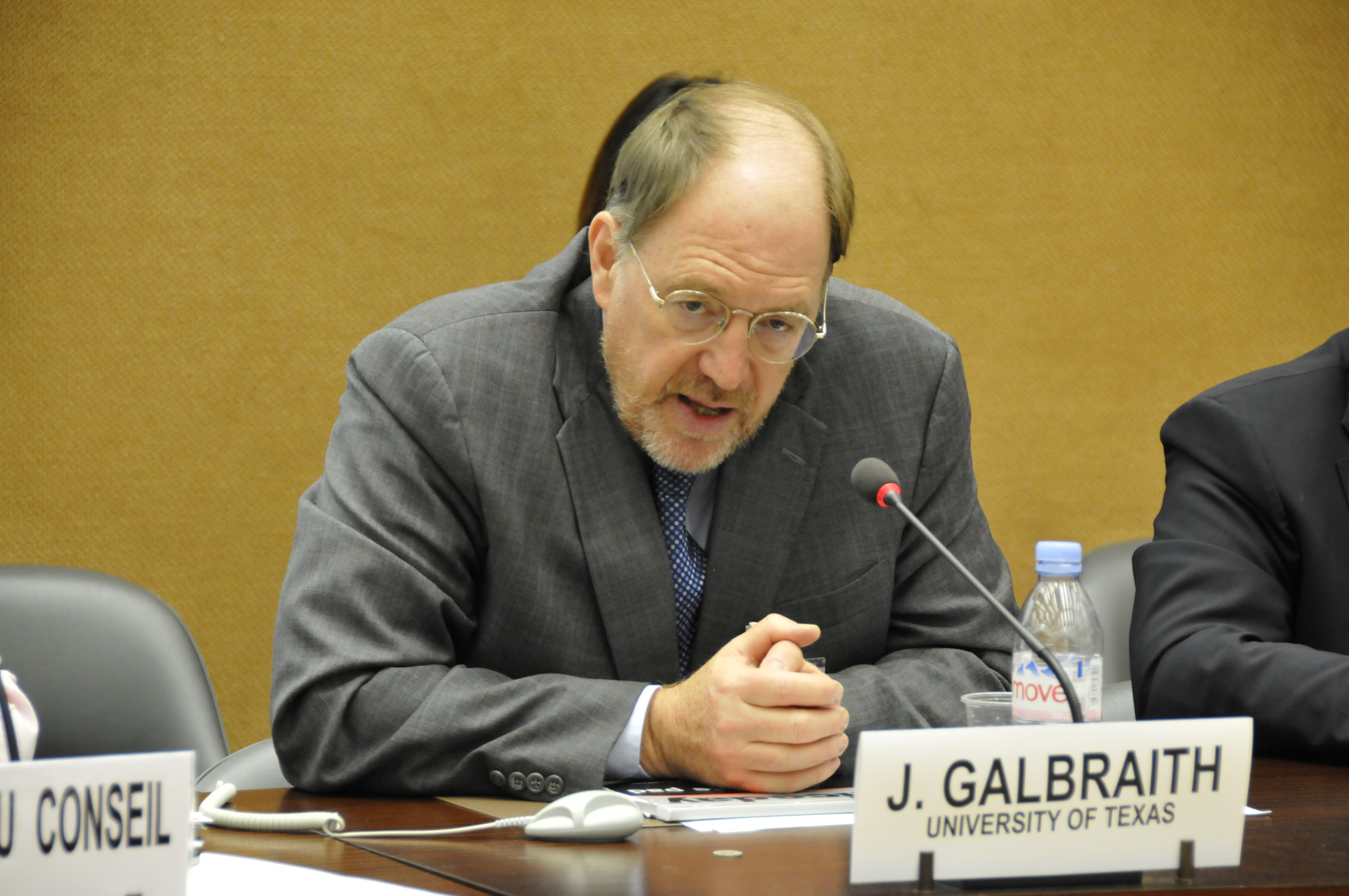WASHINGTON — James Galbraith, a University of Texas economist who was part of a secret working group coordinated by Greece’s former minister of finance, said Tuesday that there was nothing questionable about the group’s motives for looking at ramifications of a possible “Grexit,” or exit from the eurozone.
 “It was uncontroversial,” Galbraith said in a speech at the Economic Policy Institute in Washington. “It has only received notice because of the release of the conference call.”
“It was uncontroversial,” Galbraith said in a speech at the Economic Policy Institute in Washington. “It has only received notice because of the release of the conference call.”
See: Secret ‘Plan B’ for Greece detailed in Varoufakis recording
The London-based Official Monetary and Financial Institutions Forum published on Monday a full transcript of a conference call in which former Greek Finance Minister Yanis Varoufakis said that Prime Minister Alexis Tsipras had given him “the green light” to create a Plan B, looking into the possibility of creating a parallel banking system.
“There is the website of the tax office, like there is in Britain and everywhere else, where citizens — taxpayers — go into the website, they use their tax-file number, and they transfer through Web banking monies from the bank account to their tax-file number so as to make payments on VAT, on income tax, and so on and so forth,” Varoufakis said on the call, which took place July 16. “We were planning to create, surreptitiously, reserve accounts attached to every tax-file number without telling anyone.”
‘I showed up in Athens in a response to a command by Yanis [Varoufakis], who said, “Get here as soon as you can.” And when I walked into the office, he said, “Welcome to the poison chalice.” ’
James Galbraith
But Galbraith said the Varoufakis idea was basically a technical fix.
“The idea was well-originated,” Galbraith said. “You could use the existing system to make payments. … It provided an efficient way to solve a problem.”
Varoufakis met Galbraith, son of the legendary economist John Kenneth Galbraith, when Varoufakis was a visiting professor at the University of Texas.
“I showed up in Athens in a response to a command by Yanis, who said, ‘Get here as soon as you can.’ And when I walked into the office, he said, ‘Welcome to the poison chalice.’ It was apparent that the new government had been put in a position as difficult as possible by its preceding governments and its partners in the eurozone.”
Galbraith, who was in Greece between February and July, witnessed the three-week closure of the Greek banks. The banks reopened July 20.
Earlier this week, Mahmood Pradhan, deputy director of the International Monetary Fund’s European department, said in a conference call that recent weeks have seen “relatively calm reactions. … We have seen some volatility in parts of the market, in some sovereign-debt markets and some equity markets.”
But Galbraith on Tuesday offered a pessimistic long-term view for the Greek economy: “The tax increases will, quite soon, in a matter of months, cease to provide revenues that will meet the fiscal targets that has been stipulated for the Greek state.
“When that happens, automated spending cuts will be mandated, and it will further reduce the incomes of Greece’s citizens, and the result will be the resumption of the downward spiral.”


